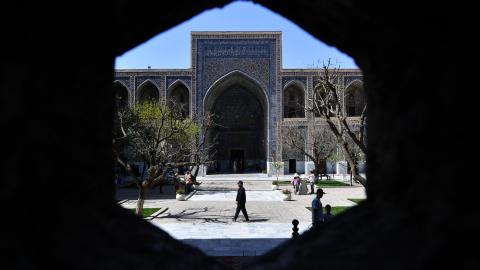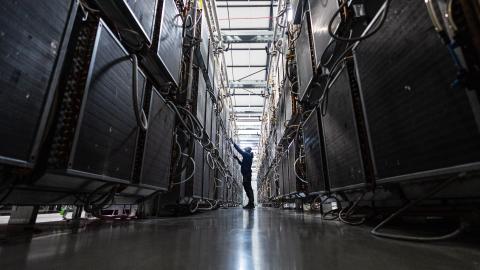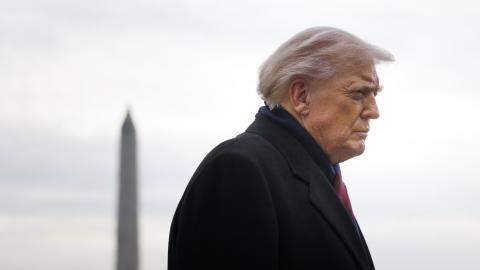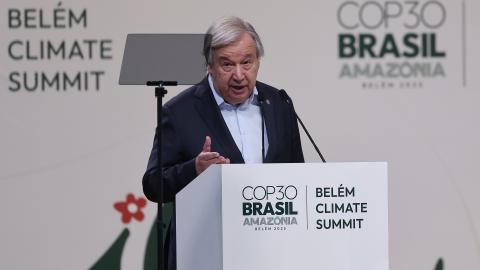Suppose they held an international summit and nobody came? The Brazilian organizers of the annual United Nations climate conference are close to finding out. They pulled out all the stops, including bulldozing tens of thousands of acres of rainforest to clear a new highway to the host city, Belém. International business leaders flocked to earlier summits, and 150 heads of government attended the one in Dubai two years ago. The moguls are steering clear of Brazil, though, and only 53 national leaders are making the trek (a shame, considering all those temporarily converted "love motels").
The sudden bursting of the climate-alarmism bubble is nearly as shocking as the global shrug that has accompanied it. Not so long ago, the climate movement was widely believed to be the most urgent cause of our time. Global do-gooders flew around the world urging others to cut transportation-related greenhouse gases, agencies and bureaucracies developed plans to slash carbon emissions, and C-suites lobbied their governments for green targets and subsidies. Now Germany is trying to avoid hosting next year's climate gabfest.
This allegedly existential threat seems to have vanished with little notice, and observers are fumbling for an explanation. Many point an accusing finger at Donald Trump, but he is far from the only bubble-burster. Xi Jinping and the emerging artificial intelligence industry have also forced decision-makers to reconsider the vast amounts of energy and attention poured into the climate crusade.
The environmental movement's preferred strategy for addressing climate change involved big international treaties to reduce carbon emissions. According to this plan, the rich industrialized countries would sharply reduce their emissions and send funds to alleviate the climate-related suffering of poorer countries and finance their economic development, albeit free of the taint of fossil fuels.
This plan never got very far. Few industrialized countries were actually willing to pony up: At the 2016 Paris Climate Accords, rich countries pledged to pay $100 billion annually through a nebulous combination of public and private contributions by 2020, but only hit even that fuzzy target years late. The 2024 conference announced a new $1.3 trillion target for 2035 that is on the same path.
And no country, rich or poor, is willing to throttle its economic development enough to meet climate goals. According to the Climate Action Tracker, no country has taken sufficient action to meet the Paris Climate Accords target. This year's updated national plans do not come close either.
Trump ended the charade. He made clear that Americans are not going to shut down their factories and pay speculative damages to foreign kleptocrats. Despite their solemn promises to soldier on regardless, other developed countries are quietly moving in the same direction as Trump. The European Union eased off its carbon emissions goals just last week.
Xi also made the fulfillment of climate targets foolhardy economically and strategically. His country has played a double game on climate issues, claiming developing-country status to evade criticism of its horrific environmental record and driving out of business environmentally friendly manufacturers in the United States and Europe. China's strong-arm tactics on rare earths are making other countries uneasy, and some are trying to rebuild their green energy industries rather than use the cheaper and more readily available Chinese products.
The artificial intelligence boom also reduces the appeal of green activism and green investments. AI data centers require massive amounts of energy—Morgan Stanley estimates the United States could in 2028 have 20 percent less power than it needs because of the buildout—and tech companies and power utilities are racing to meet that demand. The greens' hostility to energy production threatens to doom the United States to losing the tech competition with China, and they are getting run over as a result.
The tech buildout has also taken the shine off green technology. The one-for-one replacement of fossil fuels with windmills and solar panels imagined by climate activists is costly, duplicative, and wasteful, but it made a lot of sense to investors who expected their home government to ensure a return on investment. Building out data centers and the plants to power them promises far greater profits, though, and capital is flowing in that direction.
The news is not all bad for people concerned about the climate. Bill Gates, long one of the most prominent champions of green projects, pointed out just before COP30 that "climate change is a serious problem" in his view, "but it will not be the end of civilization." For poor people around the world, "the biggest problems are poverty and disease, just as they always have been." He thinks a greater focus on innovation will improve the most lives and protect the planet best.
This is good news for humanity but, according to Gates, a "tough truth" for climate activists. Why this truth—that our problems are not existential—is a hard one is an even greater mystery than what happened to the climate bubble.




















